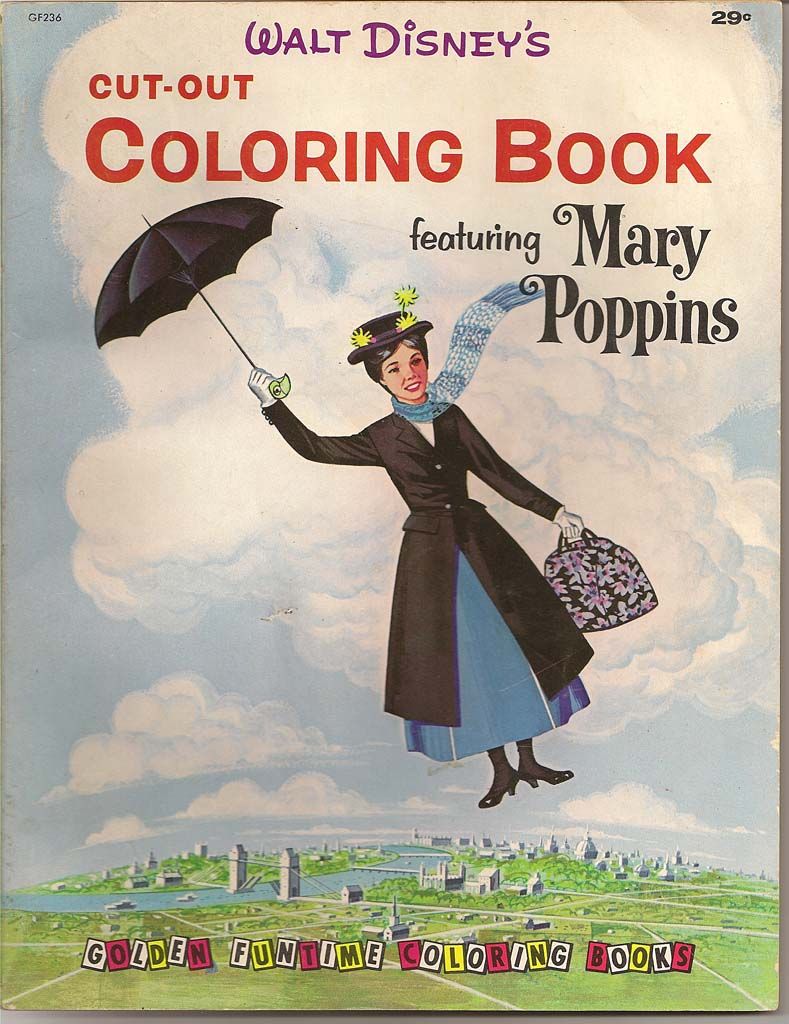The Practically Perfect Political Timing of Mary Poppins
Disney warned of reading too much into the timing of his films, but just now everyone could use a little “spit spot” from America’s favorite British Nanny
:focal(769x205:770x206)/https://tf-cmsv2-smithsonianmag-media.s3.amazonaws.com/filer/2b/b0/2bb00108-9a51-483f-b2bd-3672f8f2ceec/poppinsreturns.jpg)
It’s America, 1964. Political uncertainty puts the nation on edge. The youth are protesting, calling for social change. The daily news headlines suggest chaos, or at least, disorder.
In August that year, the movie version of Mary Poppins, presented by the Walt Disney Company with theater star Julie Andrews in the titular role, touched down in theaters across the country to great popularity and critical acclaim. The film opened with Dick Van Dyke in his role as Bert, the step-in-time chimney sweep, quietly singing as a breeze stirs in the air: “Wind’s in the East, mist coming in. Like somethin’ is brewing, about to begin.” The film, directed by Robert Stevenson, combined animated scenes with thrilling live-action dancing and won five Academy Awards, including Best Original Musical Score.
/https://tf-cmsv2-smithsonianmag-media.s3.amazonaws.com/filer/58/05/580545d7-6f8a-4208-a9b3-0b8f0b35970f/npg_78_tc206-andrews-r.jpg)
Poppins attends to the well-to-do Banks family in turn-of-the-century London, who are themselves dealing with social change. The mother has thrown herself into the woman’s rights movement—“political equality and equal rights with men!” While the father struggles to remain part of the traditional upper-class male establishment—“I'm the lord of my castle. The sov'reign, the liege!”
Poppins quickly and efficiently makes order out of disarray in the household, managing to do so with a perfect balance of firmness and fun.
And this week, in another year of political uncertainty and protests from the youth, the practically perfect Poppins reappears at a time when audiences need her stabilizing, spoonful-of-sugar presence. Featuring Emily Blunt as Poppins and also starring Hamilton’s Lin-Manuel Miranda, Meryl Streep and Colin Firth, the new adaptation centers on the next generation of the Banks family. Now the Banks children are grown—Jane (Emily Mortimer) is a worker’s rights activist and Michael (Ben Whishaw) is dealing with the death of his wife, job dissatisfaction and questioning the definition of traditional manhood that comes with being a single father and a frustrated artist. As Bert sang in the original, “I feel what’s to happen, all happened before,” the film resonates with déjà vu.
Walt Disney himself cautioned against looking for hidden intentions in the timing or content of his films, “I make pictures for entertainment and then the professors tell me what they mean.” Those “professors,” particularly biographer Neil Gabler, have consistently noted that for Disney, the man and the company, part of the magic was that unconscious ability to tap into the American moment time and time again.
Take for example, the Disney-produced Three Little Pigs, released on May 27, 1933. The animated short delivered a message about the benefits of a strong work ethic, and its song, “Who’s Afraid of the Big, Bad Wolf” resonated so deeply with audiences dealing with their own “wolf” in the form of the Great Depression that The New York Times hailed “Who’s Afraid” as the new national anthem.
Two decades later, the Davy Crockett television series that spawned the “Crockett Craze” in the 1950s dovetailed perfectly with high levels of demonstrable patriotism that the country showed in the face of the Cold War.
With 2018’s Mary Poppins Returns, it looks as if Disney is once again poised to connect directly with the current American moment. The stars of the film certainly saw the comparison, with Blunt telling Vogue that filming “took on a new poignancy because of how volatile the times felt,” and with Miranda echoing: “I couldn’t believe that, given all that was going on, this is what we got to put into the world.”

As Jodi Eichler-Levine, director of American studies and an associate professor of religion at Lehigh University, wrote for Salon, in this political climate many Americans likely feel that a “spit spot” from Mary Poppins is very much in order. The Mary Poppins that originated in the books of P.L. Travers is described by Eichler-Levine as the “Great Communicator” whose power lies in “her ability to transmit order against the forces of chaos.”
The same can be said of her on-screen counterpart. Poppins is able, in a way that brooks no disagreement, to mediate between the new guard and the old. She cuts through the external concerns of Mrs. and Mr. Banks to remind them of what most everyone can agree is more important: family. She has this power because Mary Poppins is, of course, always in the moral right. About everything. And though she has power, she wields it with love.
Actor Matt Lee, who played Bert in a traveling version of the musical adaptation of the film, neatly summarized the reason Poppins (the character and the film) find such success when the viewer is dealing with their own internal or external chaos: “It makes you feel very calm. Mary’s in control and makes everything as it should be.”
/https://tf-cmsv2-smithsonianmag-media.s3.amazonaws.com/accounts/headshot/Bemis_Bethanee_2.jpg)



/https://tf-cmsv2-smithsonianmag-media.s3.amazonaws.com/accounts/headshot/Bemis_Bethanee_2.jpg)